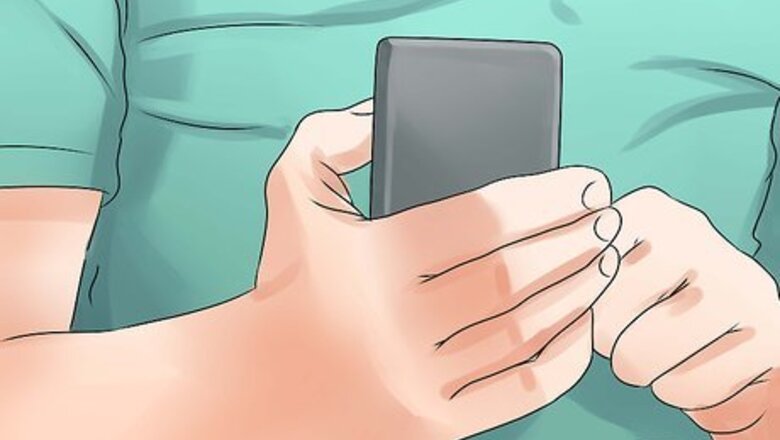
views
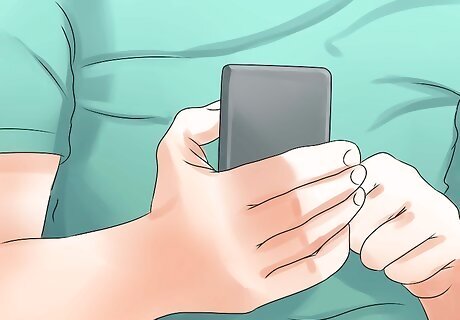
Remember that it is you using your mobile phone, not someone else. It is not other people's responsibility to cope with your mobile phone use; it is your responsibility to use your mobile phone inoffensively. Please note that "inoffensively" is not defined by what you expect others to tolerate, but by what others do in fact find offensive. Ignore this principle, and you are sure to be rude.

Assume that someone who asks you to turn your cell phone (or audio player) down or off is in good faith, and you should comply in good faith. They have a reason for asking, and it's probably not that they're trying to dominate you or hassle you or restrict your God-given right to free expression. (For example, people with temporal lobe epilepsy may find that certain sounds trigger seizures, and some people have neurosensory issues that cause extraneous noise to be a severe difficulty rather than a mild annoyance.)

Stay away from others while talking on the phone. If possible, keep a 10-foot (3 meter) distance between you and anyone else whenever you talk on your phone. Most people do not want to hear what you're talking about.
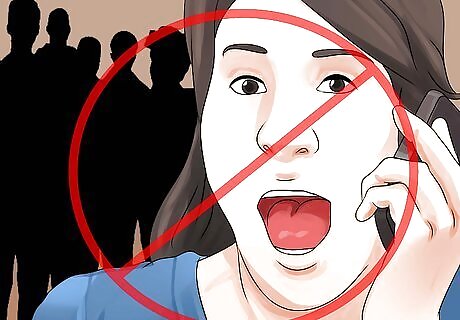
Try not to talk on the phone in any enclosed spaces, even if you're more than 10 feet away from anyone. They can still hear you (because it's an enclosed space) and usually, they're forced to just sit there and listen (and maybe be annoyed to some extent).
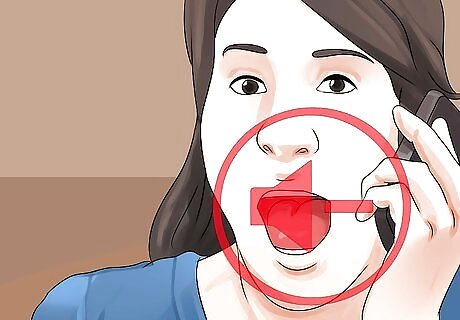
Don't talk too loudly. Generally you don't have to shout in the microphone to be heard on the other end. In fact, doing so often makes it harder for you to be understood. In addition, shouting on the phone disrupts people around you.
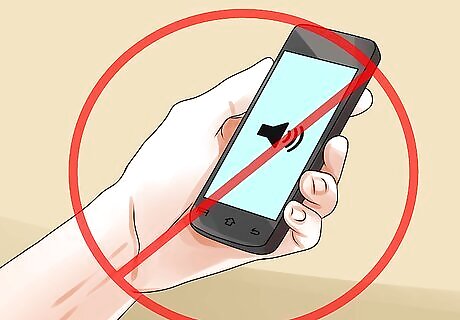
Don't put your phone on speaker. Just as many people do not want to hear your end of the conversation, they don't want to hear the other person's either.
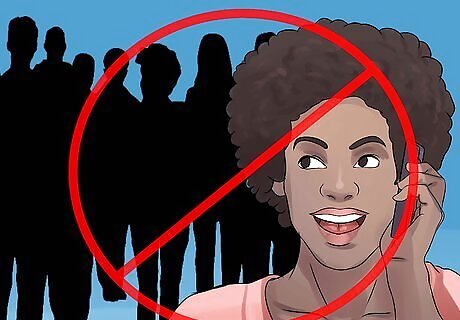
Do not talk about personal details in public. Personal is just that: personal. If callers want to talk about personal details, tell them that you will call them back later, move someplace where you can have a little privacy, or switch to text messaging.
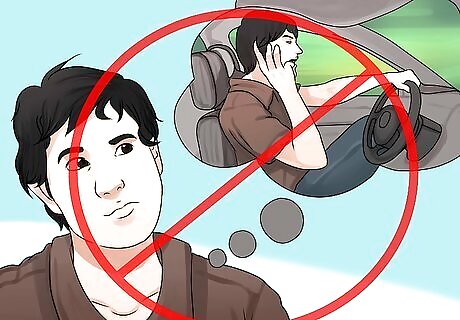
Don't multi-task. Avoid making calls while driving, shopping, banking, waiting in line, or doing almost anything that involves interacting with other human beings. In some situations it puts your life and the lives of others in danger, and in other situations it can bother some people.

Know where not to use your phone. Some places are inappropriate for cell phone usage, so avoid talking on your cell phone or having it ring while in the following places: School Work Bathrooms Elevators Hospitals Waiting rooms Restaurants Auditoriums Taxicabs Buses Trains Meetings Libraries Museums Places of worship Lectures Live performances Funerals Weddings Movie theaters While visiting relatives Airplanes Or, in fact, anywhere else where people are likely to be disturbed, unless it is important and you can't go anywhere.

Don't use your phone when having a meal with someone. Ideally, you should turn it off entirely. If you're anticipating an important call, let the person you're with know beforehand that you're expecting a call that you'll need to take. No matter what, don't hold a conversation at the table; step away and don't stay away any longer than you would for a bathroom break. Never text at the table, even if the face-to-face conversation dies down. It will be seen as disrespectful.
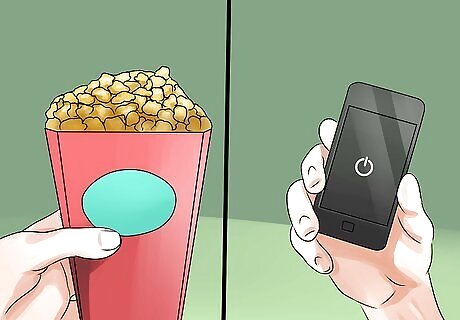
Turn off your phone at the movie theater. Even if your phone is on vibrate, people can hear it during quiet parts of the movie. The light from your phone's screen is also very distracting. Don't check the time, don't check your text messages; just turn it off until the movie is over. If you get an important call that you must answer, exit the theatre before taking it.
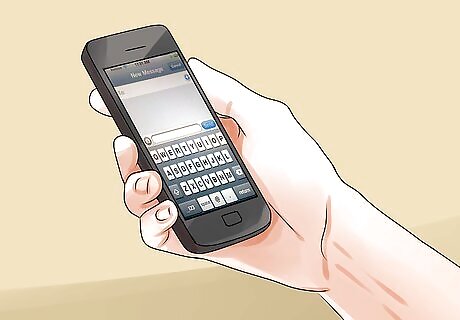
Learn to text. When you're in an enclosed space, or you can't put yourself 10 feet out of everyone's way, it's inappropriate to talk but it's potentially acceptable to receive and send text messages. In such cases, keep the following rules of texting etiquette in mind: Use the vibrate feature instead of an audible text alert. Only text when you're standing still or sitting and out of anyone's way. Don't text while you walk or drive. Don't text while doing anything that requires you to be attentive, such as waiting at an intersection for the pedestrian signal. Don't text while at a meeting or conference. You should give the speaker your undivided attention. Limit phone use during gatherings with your friends. Some friends (with or without cell phones) will find it annoying and inconsiderate. Avoid sending others text messages containing anything that you would not say in real life. It is very hard to convey tones and sarcasm in texting and email, so realize that some things may come across as sounding unusual or even offensive. Never send a message with sexual overtones, or one that could be construed as a threat. Avoid ending text messaging abruptly––end a text conversation by keeping the recipient informed with a polite excuse to cover your intention end the chat.



















Comments
0 comment